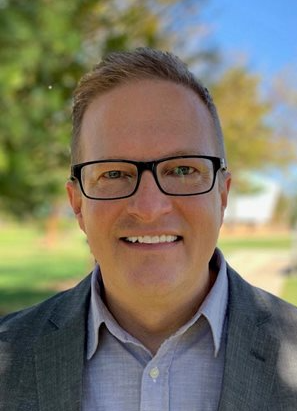Tips for Engaging Students in a Meaningful Way
Dr. Chris Heasley, an assistant professor of educational leadership in the school of health studies and education at Saint Joseph’s University in Philadelphia, is the featured guest on this episode of American Campus Communities’ College Talk podcast.
Heasley and host, Anthony Raad, discuss how to engage with students in a meaningful way as they adjust to this new normal. The conversation is sure to give parents and students some new perspectives and tools regarding community building to help them have a successful school year.
Heasley explains that engagement is really a vehicle that we use to establish a sense of community and considers a sense of community as a holistic approach in three ways:
-
(Mind) Cognitive Engagement: This involves the extent to which students focus on their role as a student. Their academic work and/or commitment to student groups, athletics, clubs (e.g., university affiliated commitments).
-
(Body) Physical Engagement: Involves a focus on physical relationships (both friendly and intimate) or can also be used to describe how one engages with their environment. Keep in mind that the environment may be one based on an organization, or socially constructed.
-
(Spirit) Emotional engagement: Asking your student how they are feeling about their engagement with their peers, faculty, campus staff, and physical space.

Dr. Chris Heasley
He reminds parents and caregivers that students are very good at articulating what they want but they don’t always know what they need. Here are a few ways for parents to help empower students along their individual and community development:
Actively listening. This is the single most helpful role you play. Take interest in hearing what students are willing to share.-
Ask questions. Focus on understanding their perspective before offering an opinion.
-
Offer validation to their feelings. This involves acknowledging that it’s okay to be happy, mad, sad, homesick, to have feelings of isolation, or strong affinity and communal association. Whatever the feeling, normalize the experience.
-
Educate yourself. Become aware of campus policies, procedures, and resources. Being able to steer your student toward these supporting frameworks helps demonstrate your (the parents/caregiver’s) support toward their development of competency and life skills development.
“I feel like the strength we have as parents and caregivers is that we can sense when they’re going to need a little more outreach from us, so I want to encourage people to do that,” said Heasley.
Acknowledging that there is bravery in that learning space, Heasley invites listeners to imagine the impact of this statement, “I’m really proud of you for how you handled that situation as you did it with great maturity. And next time, you’ll know how to solve this on your own.”
Those are the types of words of encouragement that Heasley says will really go a long way if students are wrestling with being away from home either for the first time or the first time in a while. Listen here for Dr. Heasley’s full recommendations and best practices for staying engaged.






